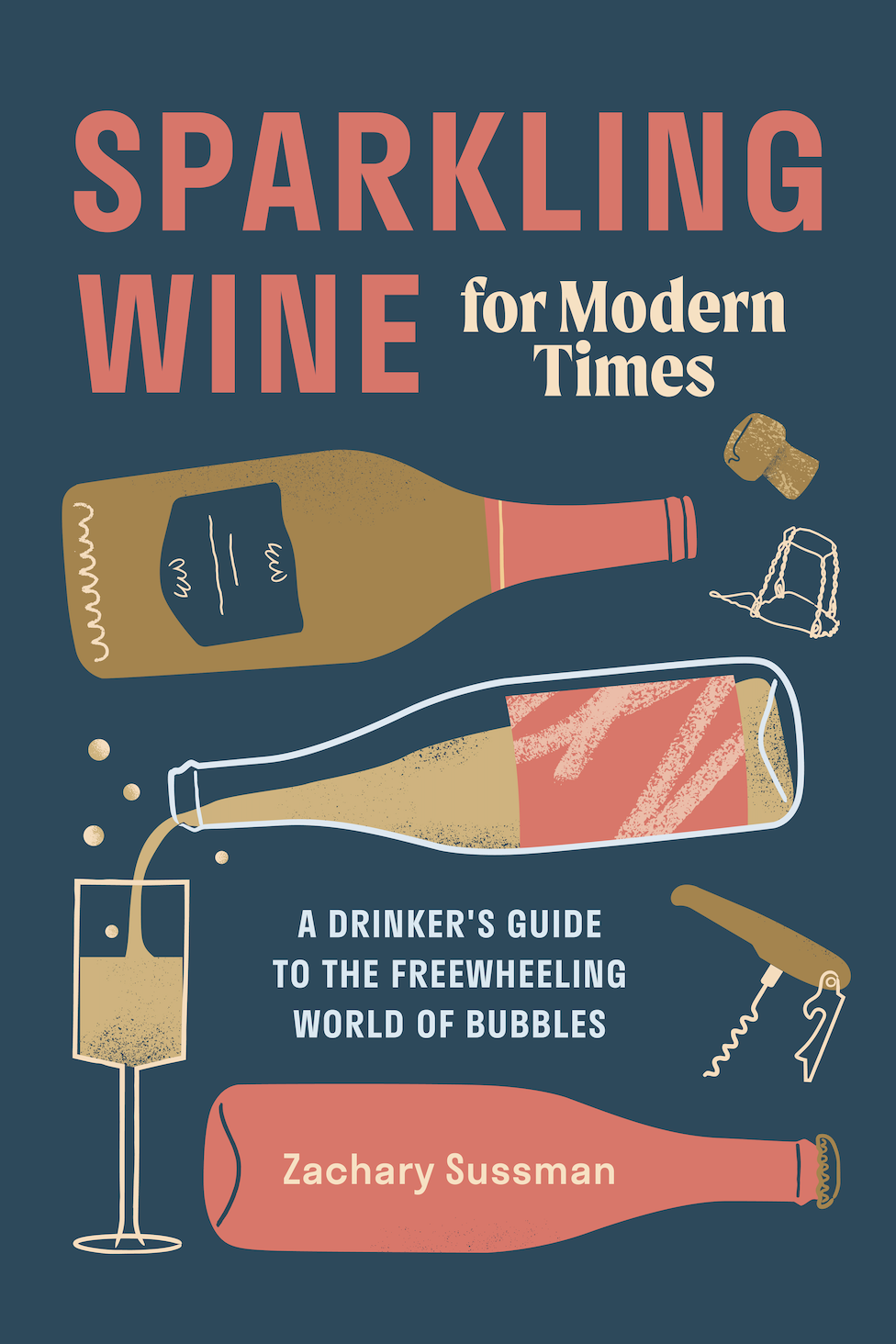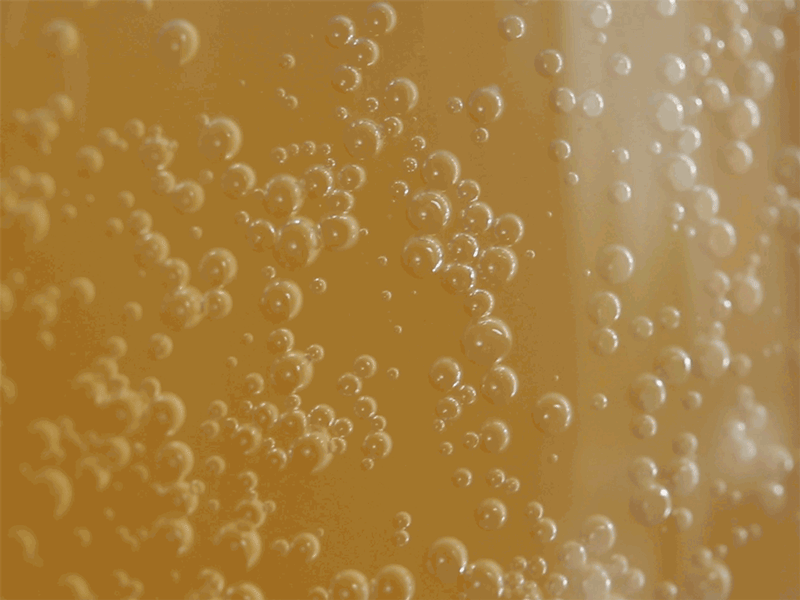Why Wine Matters
February 7, 2017 story: ZACHARY SUSSMAN illustration: YOONHWA JANG
Rhapsodizing about wine can seem superficial in fraught times, but it represents values that have never been more important. Zachary Sussman on what we mean by “world of wine,” and how it stands as a symbol of open cultural exchange, and resilience.
In the introduction to her classic culinary memoir, The Gastronomical Me, M.F.K. Fisher responds to a series of preemptive questions (they’re more like accusations, really) that echo some of the uncomfortable conversations I’ve been having with myself lately. “People ask me,” she writes, “Why do you write about food, and eating and drinking? Why don’t you write about the struggle for power and security, and about love, the way others do?”
Critics tend to interpret Fisher’s remarks as a rebuke to the “serious writers and critics,” as she referred to them in a 1990 interview, who dismissed her subject matter as “woman’s stuff, a trifle.” This reading, of course, is central, but another layer of meaning emerges in light of the book’s 1943 publication date. Writing during the throes of World War II, Fisher felt compelled to justify herself to her audience, to defend against the notion that it might be “somehow gross, unfaithful to the honor of my craft” to mull over the texture of a perfectly roasted trout, or the art of selecting oysters in the crowded market-stalls of Dijon.
It certainly helps Fisher’s case that, regardless of genre, she was one of her generation’s most gifted writers, capable of refracting essential truths about love and loss through the brilliant prism of her appetites. “I tell about myself, and how I ate bread on a lasting hillside, or drank red wine in a room now blown to bits,” she claims, “and it happens without my willing it that I am telling too about the people with me then, and their other deeper needs for love and happiness.” It’s a powerful sentiment, and she’s right. For more run-of-the-mill “food and beverage” writers such as me, however, recent events have made it difficult to muster even a fraction of that confidence.
Like practically everyone else in my Brooklyn bubble, after the election I struggled to reassure myself that the America I knew (or at least thought I did) still corresponded to the country in which I woke up on the morning of November 9th. It’s hard to define, but author Aleksandar Hemon described this sense of dislocation with disturbing accuracy: “Overnight, America—its past, present, and future—had become unreal.” During the abrupt split between “before” and “after,” many things I once took for granted no longer seemed sturdy. Wine—or more precisely, my identity as someone who writes about it—was one of them. With our nation metamorphosing before our eyes into a pseudo-fascist kleptocracy, didn’t we have more important things to worry about than fermented grape juice?
Since the inauguration, many of our worst fears have been confirmed. And a feeling of uselessness—of not being part of the solution, therefore part of the problem—still lingers. It’s only compounded by the fact that, given the Trump administration’s fondness for “alternative facts” and self-proclaimed “war on the media,” traditional journalism is now all the more essential to our democracy. Compared to the avalanche of outrageous headlines that now crowd my Twitter feed, stories like “Top Five Vacation Destinations for Wine Lovers” or “Cozy White Wines for Winter” seem laughably out-of-touch—the artifacts of an earlier, more innocent age.
Now that so many of us suddenly face far more serious concerns, even writing this, I feared, would be an embarrassing exercise of privilege. At the same time, I’m aware that power operates not just by broad strokes, but the gradual erosion of daily norms. To reclaim wine, to refuse to let it be tainted—well, maybe that would signal a small victory for the resistance. Over recent weeks, I’ve started to reconsider the ways in which wine still matters, and might even matter more than before.
As the expression of a specific country or region, wine celebrates local heritage as part of a diverse global whole. This is what we mean when we refer to the “world of wine.”
Even back in the “good old days,” when the president wasn’t a petulant toddler with autocratic tendencies (and we still had the luxury of focusing upon such urgent matters of national concern as that time Kim Kardashian’s butt broke the internet or the true color of that dress), I sometimes struggled to defend my interest in wine against a popular set of stereotypes. Wine was effete, or elitist or decadent—at best a sophisticated indulgence, at worst a pretentious waste of time.
Now the burden of proof has been raised even higher. But rather than diminish in importance, wine has actually taken on new meaning for me as a source of solace, and even a symbol of endurance. What appears utterly trivial, by contrast, is all the exclusionary hipster nonsense—the cool-hunting and status-seeking, the #unicorn hashtags—that has come to define the industry over the past few years. Maybe wine only matters so much, but it has always mattered more than that. Lately, it’s been easier to appreciate why.
As the White House continues to pursue its “America first” policy, I’m reminded that the values we share as wine drinkers—curiosity, inclusivity and cultural exchange—are fundamentally incompatible with this divisive brand of nationalism. Since I first started writing about it, wine has taken me across continents, through dozens of languages and into countless people’s homes. As the expression of a specific country or region, wine celebrates local heritage as part of a diverse global whole. This is what we mean when we refer to the “world of wine.”
This “world of wine” is about more than the “The Best Sparkling Wines for Your Holiday Party!” or circular debates about the relative value of the 100-point scale. It’s more than our latest fetishes: orange this, or pét-nat that. It tells a story of power and economics that touches upon trade, agriculture, industry and the environment. It’s about climate change and the ironies of globalization. It’s about the small farmers who are struggling to survive and the thousands of undocumented laborers working our vineyards each year. It is the history of entire populations of people—their heritage, traditions and culture. It’s also about resilience. Wine reminds me that history’s arc is broader than the last four years, or what might happen in the next.
I once had the chance to taste a rare bottle of Bordeaux from 1945. I was poured just tiny thimbleful, but as I rolled the 70-year-old liquid across my tongue, I couldn’t help imagining the men and women who pruned those vines and picked those grapes. How did they feel at the end of that harvest? How did the future appear to them, after having faced so many unknowns and endured so much suffering?
Whoever those individuals were, they’re likely long gone now, but the wine they made still speaks to us in a universal language. I find some mild comfort in that. And I look forward to the moment when, three or four decades from today, I’ll be able to pull a well-aged 2016 vintage from the cellar, pour a glass, and look back on this anxious chapter in our nation’s history as a dark but distant memory.







